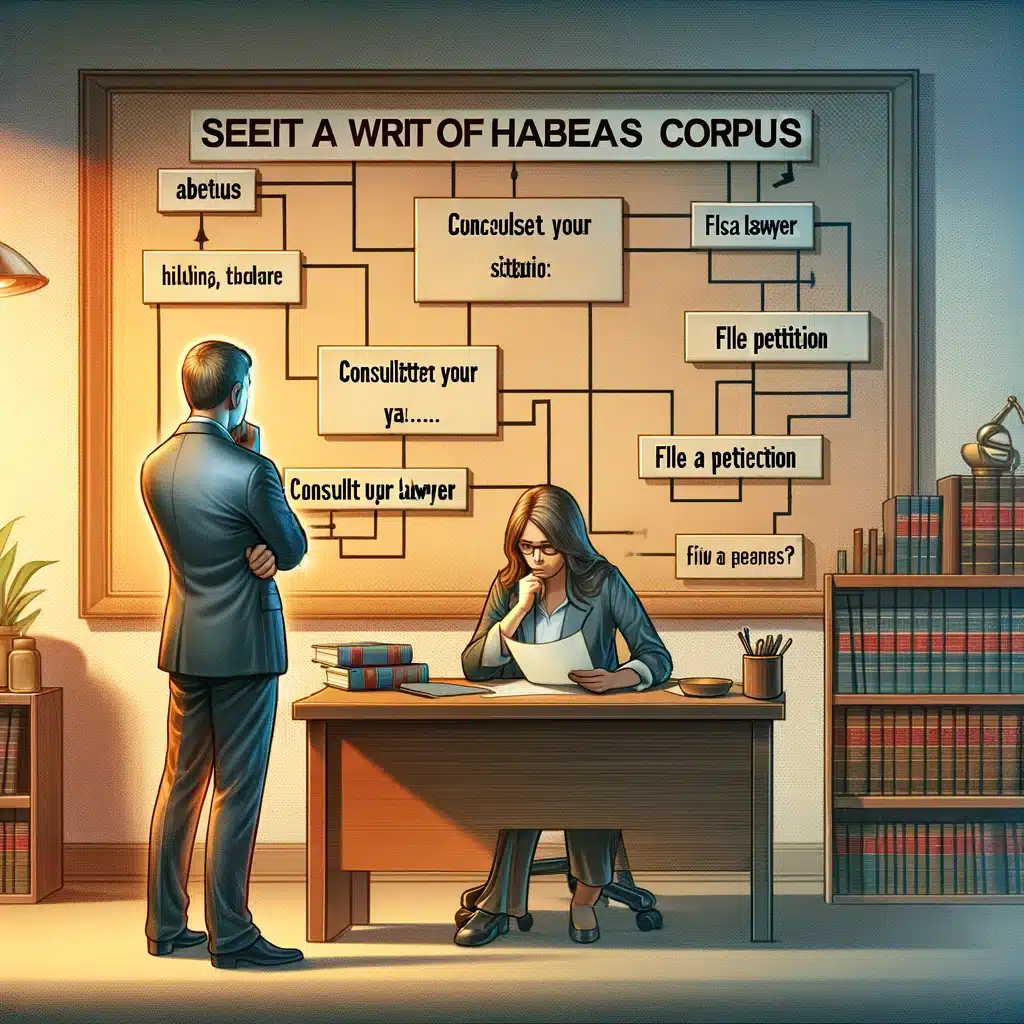The Complexities of Filing a Habeas Corpus Application: An Overview for Looking For Post-Conviction Alleviation
Navigating the intricacies of submitting a habeas corpus application is a critical action for people looking for post-conviction alleviation. As one of the most elaborate lawful solutions offered, recognizing the subtleties included in this process can make a significant distinction in the outcome of a case. From determining the grounds for submitting to fulfilling the rigorous procedural needs, each action needs careful focus to information and a thorough understanding of the lawful structure. By discovering the ins and outs of this important legal tool, individuals can reveal prospective opportunities for challenging convictions and inevitably make every effort for reasonable end results.
Understanding Habeas Corpus Applications
When looking for to understand habeas corpus requests, it is essential to understand the essential lawful concepts underlying this effective legal remedy (Lawyer). Habeas corpus, a Latin term definition "you shall have the body," is a lawsuit that allows people to look for alleviation from unlawful detention or imprisonment. This centuries-old writ functions as a protect against arbitrary state activity by offering a mechanism for individuals to test the legitimacy of their arrest
The keystone of a habeas corpus petition is the assertion that the petitioner's humans rights have actually been breached, causing their illegal apprehension. This can include insurance claims of due procedure violations, inadequate support of counsel, recently found proof, and even jurisdictional errors. Habeas corpus applications typically occur in the context of criminal process, where individuals challenge the legality of their convictions or the problems of their confinement.

Premises for Filing
There are numerous legal grounds on which people may submit a habeas corpus application, each functioning as a basis for testing the lawfulness of their apprehension. These premises usually include constitutional infractions, ineffective assistance of guidance, newly uncovered evidence, prosecutorial misbehavior, and administrative flaws.
Constitutional offenses create a common basis for submitting a habeas corpus application, incorporating claims such as infractions of the right to a reasonable trial, due procedure, or defense versus terrible and unusual penalty. Jurisdictional defects might arise when the court that founded guilty the individual did not have the authority to do so, giving a basis for testing the detention with a habeas corpus application.
Procedural Needs
Comprehending the procedural needs for submitting a habeas corpus application is essential for guaranteeing that the legal procedure is adhered to precisely and successfully. One fundamental step-by-step requirement is the exhaustion of state remedies. This suggests that prior to a federal court can think about a habeas corpus request, the petitioner must have initially offered the claims in state court and sought all available avenues of relief. Failure to exhaust state remedies can lead to the federal court disregarding the request.
Additionally, there are rigorous time frame for submitting a habeas corpus request. The Antiterrorism and Effective Capital Punishment Act (AEDPA) enforces a 1 year law of constraints, starting from the date on which the sentence ended up being last. Nevertheless, this target date can be subject to specific exceptions based upon specific conditions.
In addition, step-by-step needs mandate that a habeas corpus petition should consist of all relevant claims and supporting proof. Insufficient or inadequate petitions might be disregarded or delayed, highlighting the significance of extensive preparation and adherence to procedural rules in seeking post-conviction relief with habeas corpus.
Challenging Convictions
Exactly how can individuals properly test sentences with the process of submitting a habeas corpus application? Challenging convictions through a habeas corpus petition includes presenting legal debates that demonstrate an infraction of civil liberties, step-by-step mistakes, or brand-new evidence that was not offered during the original trial. To prosper in challenging a conviction, petitioners need to show that there was an essential issue in the criminal procedures that caused a wrongful sentence or an unjust sentence. This might include inadequate aid of advice, prosecutorial misconduct, recently uncovered evidence of virtue, or infractions of the petitioner's humans rights. Lawyer.
When filing a habeas corpus application to challenge a conviction, it is essential to follow stringent procedural needs, existing engaging lawful arguments supported by proof, and articulate how the alleged errors affected the justness of the trial. habeas corpus attorneys iowa. Looking for the help of seasoned attorneys or organizations focusing on post-conviction alleviation can considerably enhance the opportunities of an effective outcome when challenging sentences with a habeas corpus petition

Protecting Fair Outcomes
To accomplish reasonable results in tough sentences via the filing of a habeas corpus application, individuals need to carefully assess the legal basis for their claims and existing engaging evidence supporting their assertions. Securing fair results in post-conviction relief procedures requires a complete understanding of the legal system, focus to detail, and calculated preparation. It is vital to have a clear approach in location, detailing the specific premises for the request and how the here and now proof lines up with legal debates.
Additionally, individuals seeking post-conviction relief needs to abide by all procedural needs and target dates to ensure their application is taken into consideration by the court. Failure to satisfy these needs could result in the dismissal of the application without the qualities being evaluated. In addition, engaging the services of skilled lawyers, such as lawyers focusing on habeas corpus petitions, can considerably improve the opportunities of protecting reasonable end results.
Verdict
In conclusion, the complexities advice of filing a habeas corpus application for looking for post-conviction alleviation entail comprehending the grounds for declaring, conference procedural demands, testing convictions, and safeguarding reasonable end results (federal habeas corpus nebrska). It is essential to thoroughly navigate the legal process to guarantee the best possibility of success in looking for alleviation via this avenue. Comprehending the intricacies of habeas corpus applications is necessary for people looking for to test their sentences and get justice